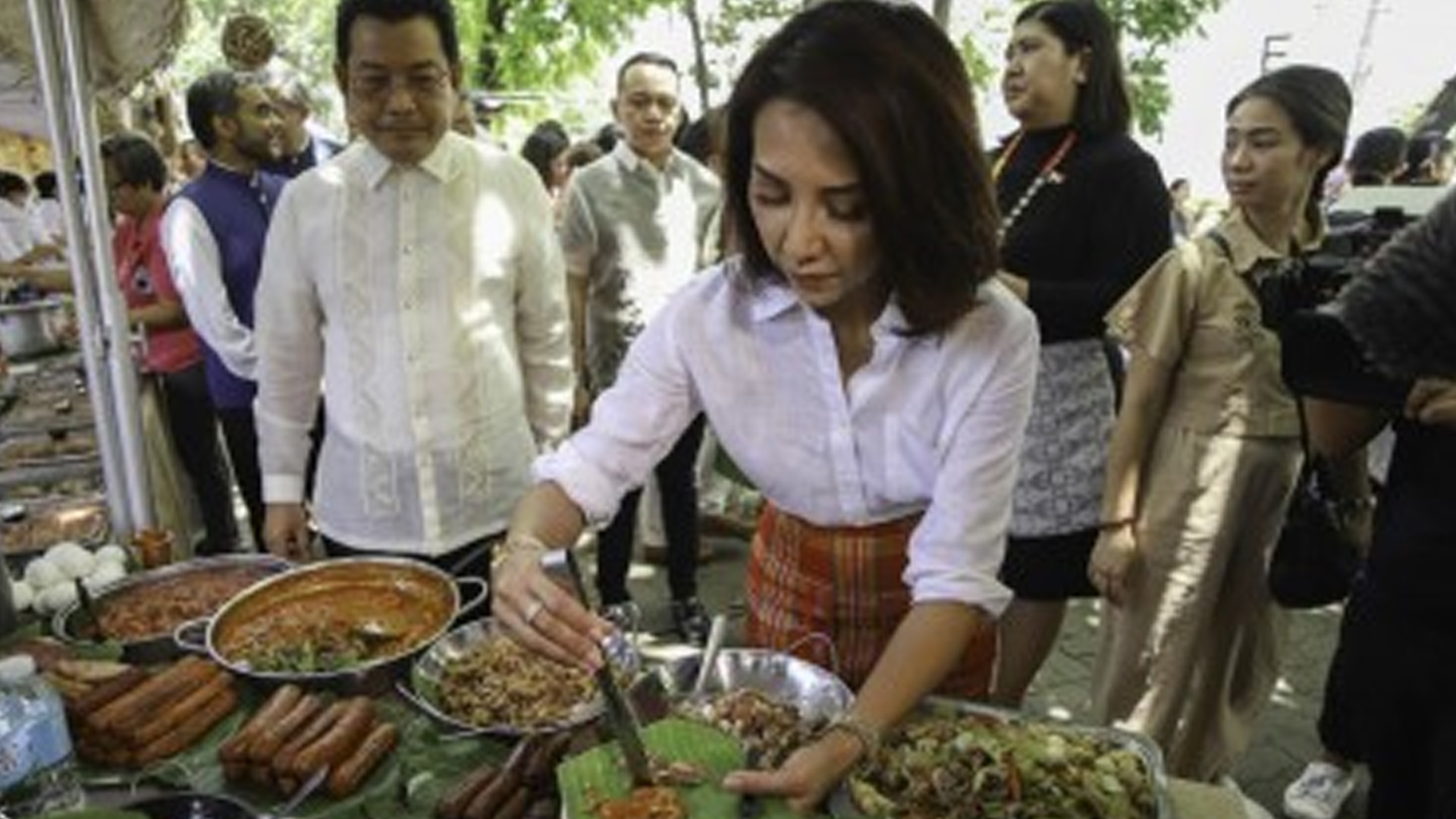The Philippines is set to host the inaugural UN Tourism Regional Forum on Gastronomy Tourism for Asia and the Pacific from June 26 to 27, the Department of Tourism (DOT) announced Wednesday.
The event is expected to gather some 300 attendees, including ministers from UN member-states, affiliate members, and tourism stakeholders from international organizations, to exchange knowledge and best tourism practices in the Pacific, East, and South Asia regions.
The event will be held alongside the 36th UN Tourism Joint Commission Meeting for East Asia and the Pacific and Commission for South Asia on June 28.
Discussions during the forum on June 26 will focus on policy framework for the development and promotion of gastronomy tourism, value of land and products in the sustainable development of gastronomy tourism, cost-effective and environmentally responsible strategies for reducing food waste and promoting local sourcing, and successful best practices in gastronomy tourism in the Asia Pacific region, among others.
The delegates, meanwhile, will sample the best of Philippine flavors through a showcase by top Filipino chefs, and get a glimpse of Cebu’s allure as a top tourist destination through a technical tour on June 27.
In a statement, Tourism Secretary Christina Frasco said the DOT and the country’s tourism stakeholders are ready to host the UN events, seeing it as an opportunity for the Philippines to showcase its culinary treasures on a global stage.
“As chair of the UN Tourism Commission for East Asia and the Pacific, the Philippines commits fully to leveraging the region’s strategic position to promote a range of initiatives that will benefit not only our country but also our neighbors, particularly, its rich and diverse gastronomy tourism portfolio,” she said.
Citing a report from the World Food Travel Association, the DOT said around 80 percent of travelers research food and drink while visiting a destination.
The report also classifies over half or 53 percent of all travelers as “culinary travelers.”
In a 2023 report by Booking.com, 34 percent of travelers prioritize restaurants and dining experiences, viewing them as gateways to understanding local traditions and lifestyles.
Future Market Insights valued the Philippine gastronomy tourism market at USD5.4 billion in 2022 and it has been projected a compounded growth annually at 14.7 percent over the next decade.
Iconic Filipino dishes such as braised pork and chicken dish adobo, tamarind-based sour soup sinigang, and the ever-popular open fire-roasted lechon and sisig have earned praise from known food journalists in the past.
For instance, the late chef and TV host Anthony Bourdain, while dining in Cebu, branded lechon the “best pig ever” and declared Pampanga’s sizzling pork medley sisig as “perfectly positioned to win the hearts and minds of the world as a whole.”
Food critic Andrew Zimmern, meanwhile, has gone on record to declare Filipino food as “the next big thing” in the US as early as 2017.
The Philippines is also home to Iloilo City, a UNESCO Creative City for Gastronomy, and regions such as Western Visayas, the Cordillera Administrative Region, Pampanga, and Cebu are actively engaged in the development of Slow Food programs.
Under its National Tourism Development Plan (2023-2028) approved by President Ferdinand R. Marcos Jr. and in line with its enhanced tourism campaign, “Love the Philippines”, the DOT is deep in developing more culinary tours and festivals, dining destinations, and food trail activities to further intensify the promotion and development of the country’s diverse gastronomy tourism offerings.
“As we intensify our diversification of the country’s tourism portfolio through multidimensional tourism, we strongly see food as a crucial element in enhancing the Philippine cultural experience,” Frasco said.
“In addition to integrating food in festivals, arts and crafts, traditions, and practices, we are actively working towards supporting the development of halal/Muslim-friendly tourism, heritage villages for cultural communities, and the preservation of farms and heritage sites,” she said. (PNA)





